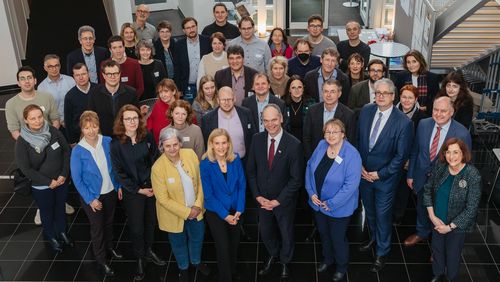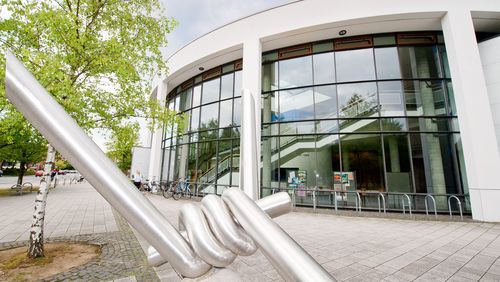Strengthening promising areas in the humanities and social sciences in a targeted manner and bringing them into dialogue with the natural sciences, promoting highly talented researchers in the best possible way and strengthening its own networks in the region as well as nationally and internationally - the University of Oldenburg is pursuing these goals with particular vigour over the next five years.
For its extensive "Programme for Excellence", it is now receiving 22.5 million euros from the state of Lower Saxony, which is funding the further development of universities in Lower Saxony as part of the "Strategical Depelopment of Potential" funding line. This is part of the zukunft.niedersachsen programme of the Volkswagen Foundation and the Ministry of Science and Culture.
"We are delighted that our vision for the future profile of the University of Oldenburg has been so convincing. The funding from Hanover will enable us to implement innovative ideas that will bring us a big step closer to our goal of excellence," says University President Prof. Dr Ralph Bruder. "We are convinced that looking at socially relevant topics simultaneously from different scientific disciplines harbours great potential - for new research results and thus for how we all deal with increasingly complex social challenges."
Among other things, the University of Oldenburg is using the funding to set up cross-faculty research groups - so-called "booster units". Researchers from different schools are working on innovative, interdisciplinary and socially relevant topics. For example, researchers from University Medicine Oldenburg will be working together with researchers from the educational sciences to investigate the health and development of premature babies. The university's outstanding research activities in marine sciences, hearing research and animal navigation will be complemented by a strong societal and social science perspective. The booster units not only create new research approaches, but also offer scientists at early career stages in particular the opportunity to establish themselves in a promising field.
With the "Programme for Excellence", the university is strengthening its existing excellent research, promoting university and international networking and tapping into potential in the humanities and social sciences. For example, researchers from these areas will focus intensively on the importance of digitalisation for education, teacher training, history and the social sciences. The university had already laid the initial foundations for a focus in this area and achieved initial successes, for example in the German-British "Prize Papers" project, in which researchers are digitising and categorising thousands of documents and artefacts related to ship captures that took place between 1652 and 1815. The funding makes it possible to research further approaches across schools that arise from the interplay between digitalisation and the humanities and social sciences.
The "Connected Health Northwest" project, which the university will set up together with the affiliated OFFIS Institute and the German Research Center for Artificial Intelligence in the IQON innovation quarter, also has a strong digital focus. The aim is to use artificial intelligence to develop digital applications for sustainable and patient-centred healthcare. Among other things, the funding will enable a training centre to be set up there.
Another important goal is to work even more closely with the partner university in Groningen. By joining forces, the University of Oldenburg aims to establish itself as an innovation centre in the north-west and an academic bridgehead to the Netherlands. New networks between the two universities are primarily intended to bring researchers closer together - be it through conferences, mutual visits or online events. Around 15 researchers per year will also be given the opportunity to spend up to four months on a research stay at the respective partner university. Another programme enables one doctoral candidate per year and School to conduct research and complete a doctorate at both universities at the same time. The costs are shared between the institutions.
"The structured programmes, which will bring the humanities and social sciences into a dialogue on an equal footing with the natural sciences, Computing Science and health sciences, make our 'Programme for Excellence' a tool that sets the course for a successful and excellent future for our university in the medium and long term," emphasises Prof. Dr Ralf Grüttemeier, Vice President for Research and Transfer.




